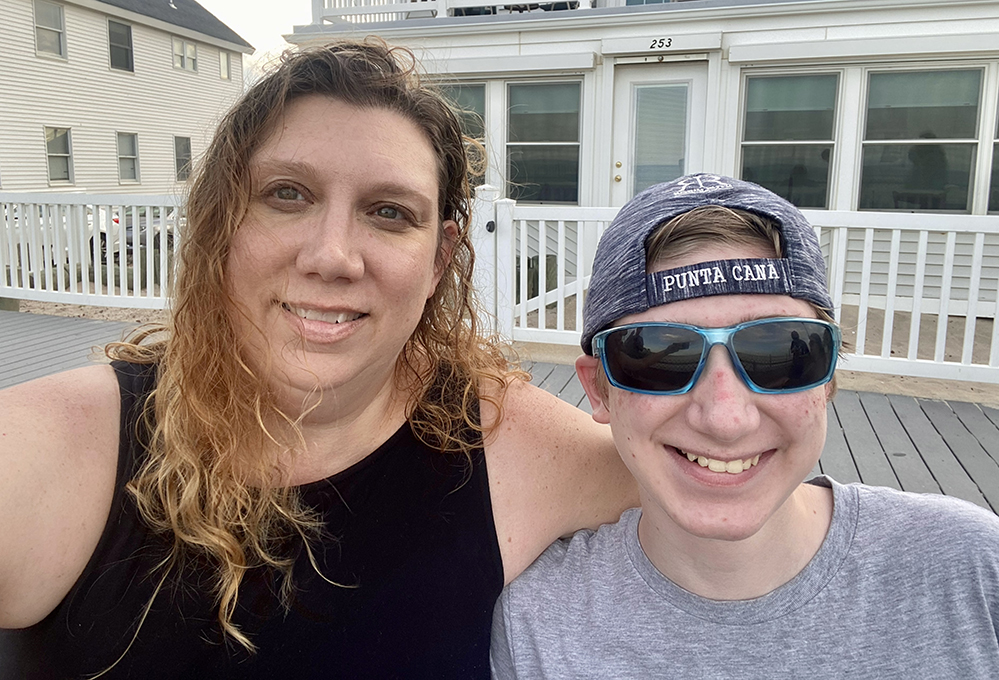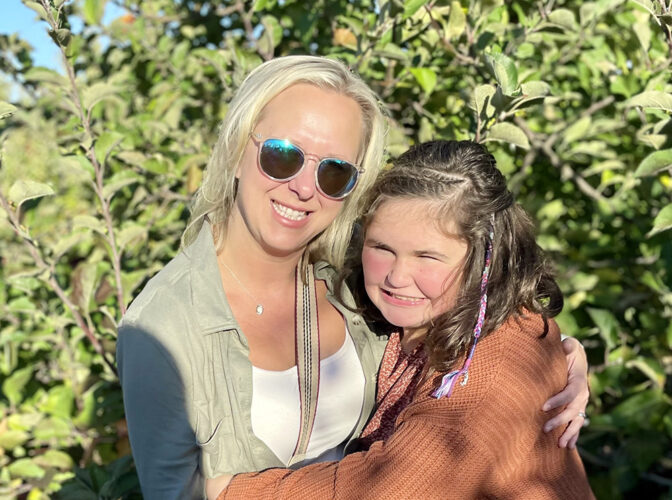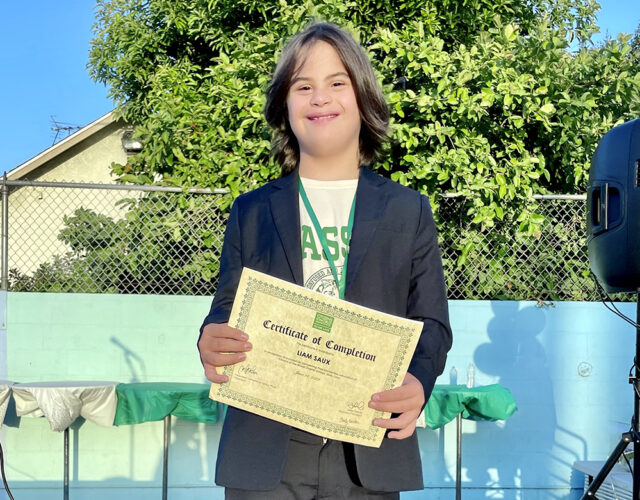‘You Don’t Get That Time Back’: Parents Seek Special Ed Services Lost to COVID
But the leader of an administrators group says there’s “no humanly way possible” educators can make up for a year of school closures
By Linda Jacobson | December 15, 2022This story is published in partnership with The Guardian.
Marissa Sladek knew her son Christopher had fallen far behind when she bought him a copy of Jack London’s “The Call of the Wild.” The movie had opened just before the pandemic, and survival-themed fiction was his favorite.
Lockdown cut him off from literacy support he’d been receiving as a special education student. During remote learning, his autism and learning disabilities left him unable to navigate email or Google Meets. By the following year, when he entered the seventh grade, Christopher was reading near a third grade level.
“He could read the words,” his mother said, “but he couldn’t comprehend them.”
Sladek asked the Hillsborough Township Public Schools in central New Jersey about compensatory education — the term for a district’s duty to make up services when it fails to provide them to students with disabilities. By Sladek’s calculation, her son had lost about 8,000 minutes of instruction. The district initially offered a fraction of that amount — 300 minutes — and according to her complaint, an official said they weren’t going to “dwell on the past.” An attorney for the district emailed to say officials don’t “believe that Christopher is entitled to any compensatory education.”

Parents around the country are facing similar pushback as they try to recoup services lost to the pandemic. It is the latest battle in one of the most litigated arenas in education. In a 2020 survey, just 20% of parents of students with disabilities said their children were receiving required services and a 2021 report said the pandemic was exacerbating learning gaps for those students.
But district officials say they can’t be blamed for a public health disaster that was out of their control. They insist teachers did the best they could under extraordinary circumstances.
“There is no humanly way possible to make up for 12 months, 13 months, 14 months of services if a school was shut down. It would take years,” said Phyllis Wolfram, executive director of the Council of Administrators of Special Education. “We have to think reasonably and logically.”
Federal officials see things differently and launched civil rights investigations in three districts and one state. Last month, the U.S. Department of Education reached an agreement with the Fairfax County Public Schools in Virginia, requiring them to identify which students they failed to serve and begin to make up for it.
“I started shaking as I read the report, overwhelmed by happiness, sadness and anger,” said Callie Oettinger, a parent advocate who runs a website focusing primarily on special education in Fairfax. “We could have avoided the destruction done to kids and to the relationships between educators and parents.”
But Wolfram said such requirements place undue burdens on school districts that are already spread thin. The debate is starting to play out in court. In Arkansas, a federal judge ruled in March that the Beebe School District doesn’t have to pay a year of private school tuition for a student with dyslexia because teachers sent home packets of assignments and offered remote instruction.
A case from Washington, D.C., went in the opposite direction. A judge ruled in March that the district owes a child compensatory services because federal law “contains no exception that would allow suspending special education services because a global pandemic forced schools online.”
Across the country, many parents didn’t hear from their children’s therapists or teachers for months after schools shut down.
“I have seen so much neglect and carelessness and the absolute marginalization of these kids during and after the pandemic,” said Georgianna Junco-Kelman, a special education attorney who represents families in Los Angeles. “These kids are not going to regain those skills. You don’t get that time back.”
Multiple investigations
The district’s failure to maintain services for students caught the attention of former Education Secretary Betsy DeVos in the final days of the Trump administration, sparking an investigation by the department’s Office for Civil Rights.
The probe found that staff members counted simple emails and phone calls to families as actual services to students, and didn’t consider kids’ individual needs.
Under an agreement Superintendent Alberto Carvalho signed in April — similar to the one in Fairfax — the district must determine how many of its 66,000 students with disabilities are now eligible for services.
Similar probes targeted the Seattle Public Schools and the Indiana Department of Education after federal officials received multiple complaints from parents in the state.
Some districts did scramble to find solutions. Just weeks after schools shut down in New Jersey’s Tinton Falls School District, about an hour southeast of Hillsborough, special education director Kerri Walsifer began reviewing the individualized education programs that guide the instruction of special education students to see what the district could realistically provide.
And when educators couldn’t come through, she tried to make it right.
Prior to the pandemic, Tinton Falls paid for Lina Esposito’s daughter Ella, who has ADHD and autism, to attend school in the nearby Long Branch district, which was better equipped to meet her needs. But when students returned from remote learning last fall, teachers complained about Ella’s behavior. They said she refused to go outside for a fire drill, was a “safety risk” and that Long Branch was no longer a good fit.

But Walsifer didn’t have a spot for her in Tinton Falls either. That left Ella home with no services until this past February, when the district found her a new school.
The special education director arranged for Ella to receive speech therapy and behavioral support to make up for some of the services she missed.
‘They tear you up’
But other families found districts unwilling to negotiate. For Los Angeles parents Lori and Stephen Saux, the request for compensatory education turned into a drawn-out struggle that ended with them pulling their son Liam out of the district.
“They tear you up, and they make you feel helpless,” Lori said.
During remote learning, Liam, who has Down Syndrome, didn’t receive most of the services spelled out in his IEP, such as a modified physical education program and a “resource” teacher to help him practice challenging words before answering questions aloud in class.
To fill that void, his mother or father sat with him during Zoom sessions. The teachers would “joke and say, ‘You should get your teaching credential because you’re so good,’ ” Lori said. She didn’t find it funny.
Last fall, when COVID cases among students spiked, Liam’s doctor put him at a higher risk of infection and strongly advised against him returning to school in person until he was fully vaccinated. But school was the only place Liam could get the education he needed.
The Catch-22’s didn’t end there. The district’s home hospital program turned Liam down because he wasn’t sick, and his IEP said placing him in the remote, independent study program would be inappropriate.
Home for four months with no education, he eventually enrolled in a charter school.
A spokesperson for the district said “student matters are confidential” and wouldn’t discuss the case.

Now at Citizens of the World, Liam remains uncomfortable in social situations after nearly two years without classmates and behavioral support, Lori said. It took him a while to sit with others at lunch and join in games. And he still struggles to construct a paragraph and “get out what he’s trying to say.”
His parents started a podcast to help others advocate for their children and go into negotiations with districts knowing what to.expect.
“I don’t think their goal is to correct things,” she said. “I think their goal is to create a system that looks like they’re doing what they’re supposed to do.”
Get stories like these delivered straight to your inbox. Sign up for The 74 Newsletter

